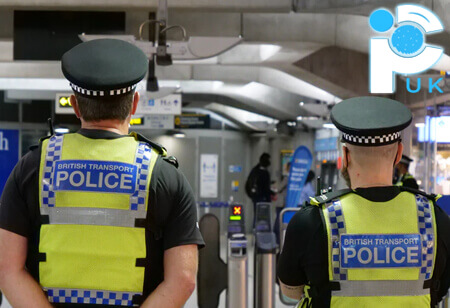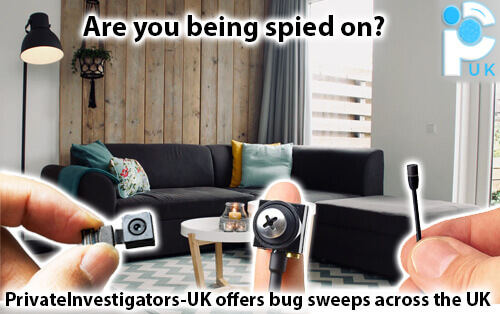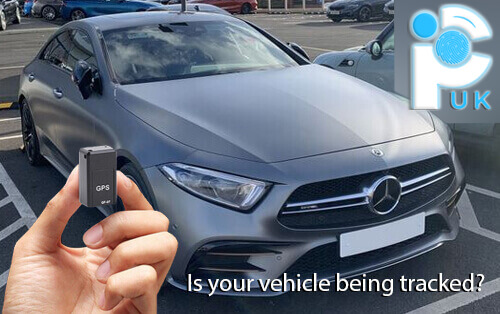How to Find UK Police Bugs in Your Home
May 16, 2021 - Reading time: 13 minutes
Updated on: September 28, 2025
Modern surveillance techniques have advanced dramatically, and while lawful surveillance by UK authorities exists, unauthorised tracking and spying by private entities is an increasing concern for many. Whether you are a high-profile individual, a business owner, or simply a privacy-conscious person, knowing how to detect hidden bugs can offer peace of mind.
Quick Navigation
- Understanding surveillance devices
- How to detect hidden bugs
- What devices look like
- Vehicles and GPS tracking
- Can the police bug your home after a raid?
- Can police bug your house without a warrant UK?
- How do I know if police have bugged my house?
- Preventing future surveillance
- Book a professional bug sweep
- Related articles
- FAQ
- Important legal note
Understanding Surveillance Devices
Surveillance bugs can come in many forms - hidden microphones, miniature cameras, or GPS trackers. These devices are sometimes used by private individuals or entities without consent. They can be placed in homes, offices, or vehicles. Some transmit data wirelessly in real time, while others store recordings for later retrieval. In rare but serious cases, advanced devices may be encountered - particularly when high-value targets or sensitive environments are involved. Detecting such equipment usually requires specialist knowledge and tools.
How to Detect Hidden Bugs
Detecting sophisticated surveillance devices requires proper equipment and experience. Examples include:
- RF receivers and spectrum analysers for wireless transmissions
- Camera lens detectors to find pinhole optics
- Non-linear junction detectors and near-field probes
- Thermal imaging and targeted physical inspections
While inexpensive bug detectors are widely available online, they may not be sufficient to detect advanced or well-concealed devices. Professional-grade tools and trained technicians can often locate hidden threats that consumer devices cannot.
Concerned your space is monitored? We can help 🔎
Bug Sweep (TSCM) Service - UK-wide, discreet, professional
- Detection and removal of hidden microphones, cameras, GPS trackers and covert Wi-Fi devices.
- Advanced RF spectrum analysis, lens detection and meticulous physical inspection.
- Free & confidential quotes: submit your postcode and property size via our secure form.
What Do Hidden Surveillance Devices Look Like?
Hidden bugs may resemble ordinary electronics or be disguised within everyday items. They could appear as:
- Small plastic boxes or circuit boards
- Altered smoke detectors or plugs
- Objects with unusual wiring or unexpected weight
Professional surveillance equipment may be extremely discreet. Identifying these often requires disassembly of electronics or inspection by someone trained in electronics and counter-surveillance.
Vehicles and GPS Tracking
Tracking devices in vehicles are increasingly common in private investigations, disputes, or even domestic abuse scenarios. They can be placed externally or internally in seconds and may operate for weeks or months depending on the battery. Microphones hidden in vehicles can also record conversations. A thorough sweep checks all likely concealment points.
Can the police bug your home after a raid?
In the UK, covert surveillance and property interference are tightly regulated by the Regulation of Investigatory Powers Act 2000 (RIPA). In serious cases, police may obtain lawful authority for intrusive surveillance, which could include installing listening devices. However, this requires high-level approval and is generally reserved for major organised crime or terrorism investigations. Police cannot casually bug a property after a raid without proper authorisation.
Can police bug your house without a warrant UK?
No. Intrusive surveillance in private residences requires a warrant or equivalent legal authority. Installing a covert listening device without it would be unlawful. If you are concerned about possible lawful surveillance, the safest step is to obtain independent legal advice.
How do I know if police have bugged my house?
There are no guaranteed outward signs. Suspicious details can include tampered fittings, unexplained new devices, interference on radios or TVs, or sensitive information leaking. Professional bug sweeps can identify common threats. If you specifically suspect lawful surveillance by police, do not tamper with devices-seek legal advice immediately.
Preventing Future Surveillance
- Use CCTV and motion sensors around access points
- Secure vehicles in locked or monitored areas
- Limit unsupervised access to private spaces
- Verify visitors and contractors
For high-risk situations, regular sweeps may be advisable. Our team offers nationwide bug sweep services tailored to homes, vehicles, and offices.
Book a Professional Bug Sweep
Private Investigators UK conducts TSCM bug sweeps nationwide. We use near-field receivers, spectrum analysis, lens detection, and physical inspection to locate hidden microphones, cameras, and trackers in homes, offices, and vehicles.
Unsure but concerned? Request a free, no-obligation quote with postcode and property size, or learn more about our process.
FAQ
Do UK police need a warrant to bug your home?
Yes. Intrusive surveillance in private residences generally requires a warrant or equivalent approval under RIPA 2000.
Can police bug your home after a raid?
Only if authorised under strict legal frameworks for serious crime or terrorism investigations. It cannot be done casually.
How common is police bugging in the UK?
It is rare and reserved for high-level investigations. Most concerns about bugs involve unlawful private surveillance, not police.
What law governs covert listening devices in the UK?
The Regulation of Investigatory Powers Act 2000 (RIPA) sets out the rules for lawful interception and intrusive surveillance.
You are reading the PrivateInvestigators-UK blog — home to the UK's leading detective agency. Learn more about us by visiting our homepage PrivateInvestigators-UK.com.


